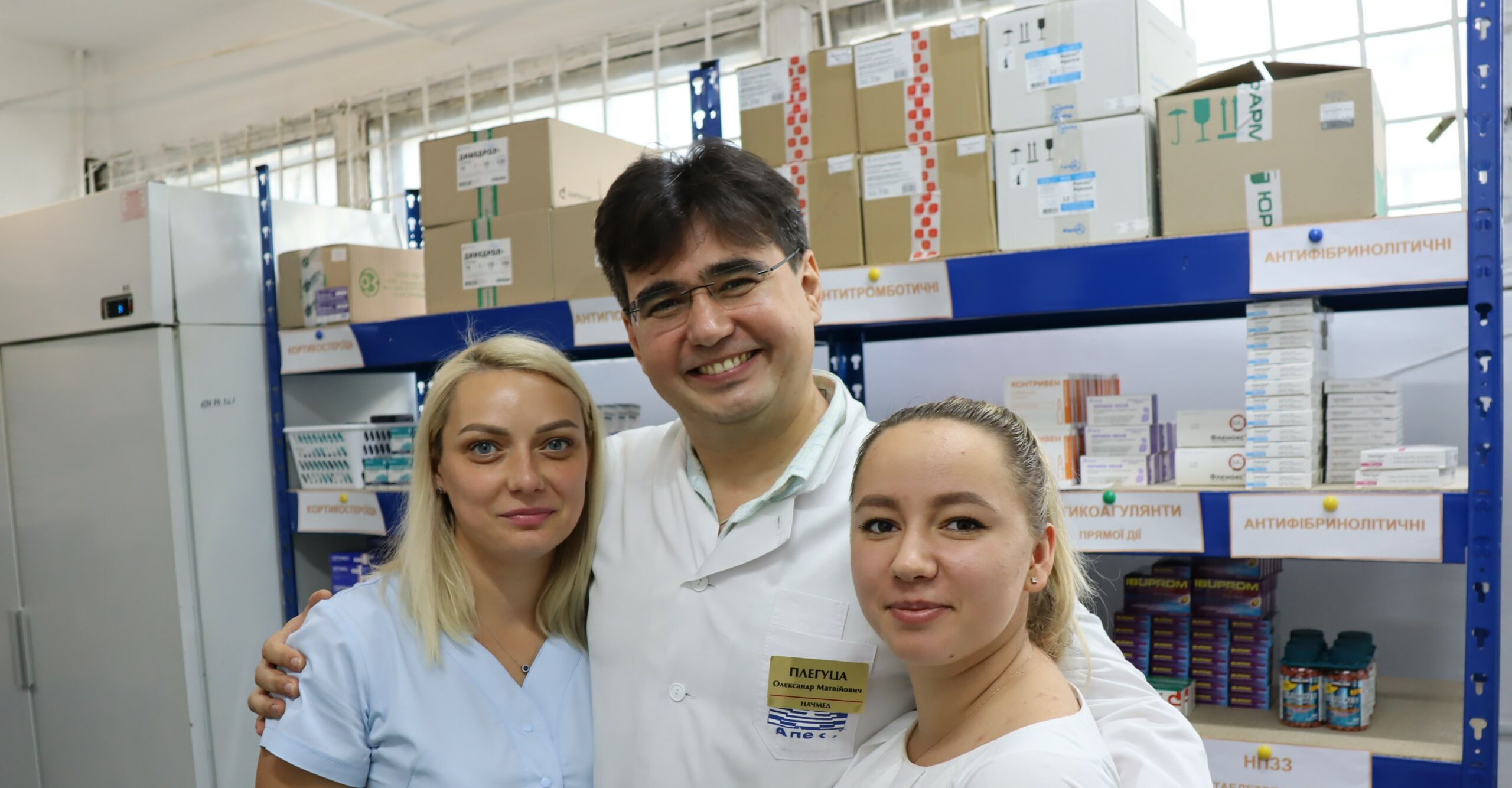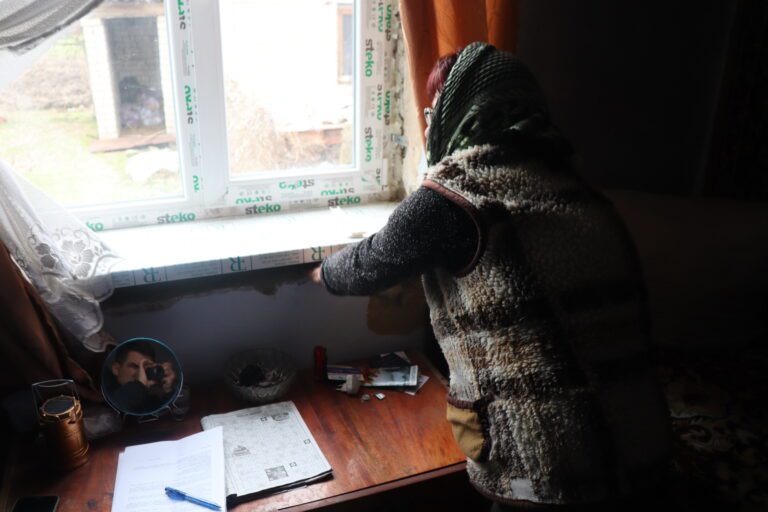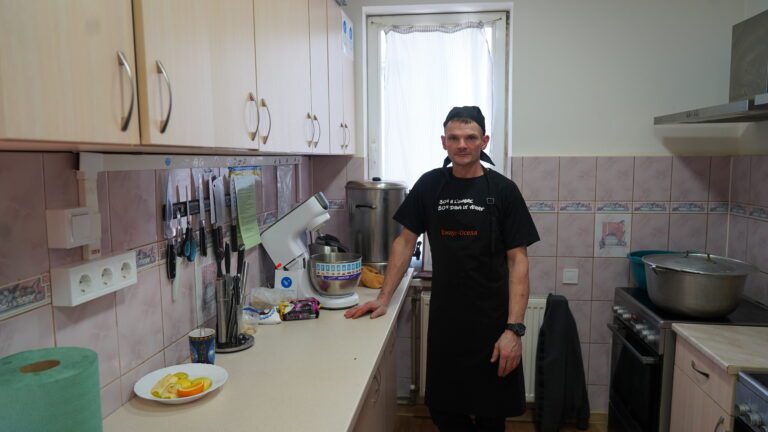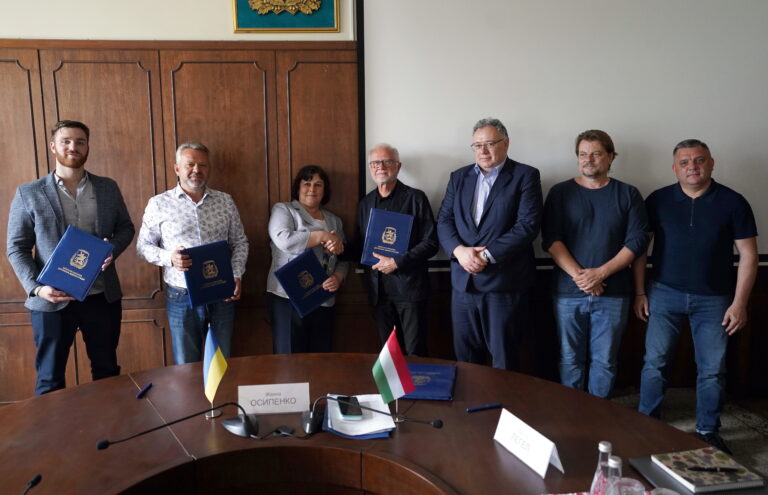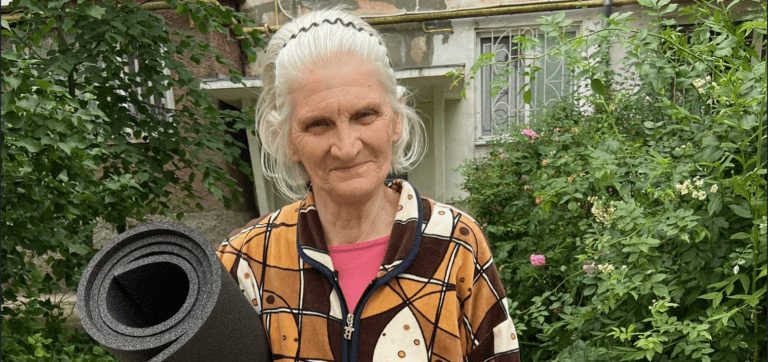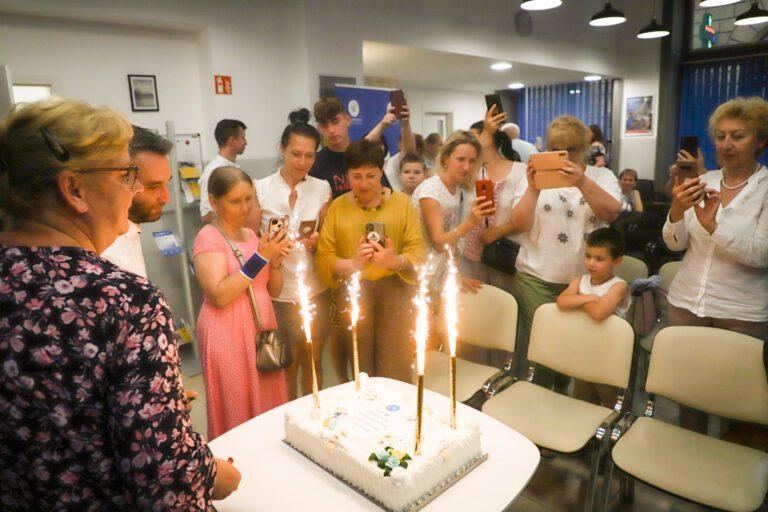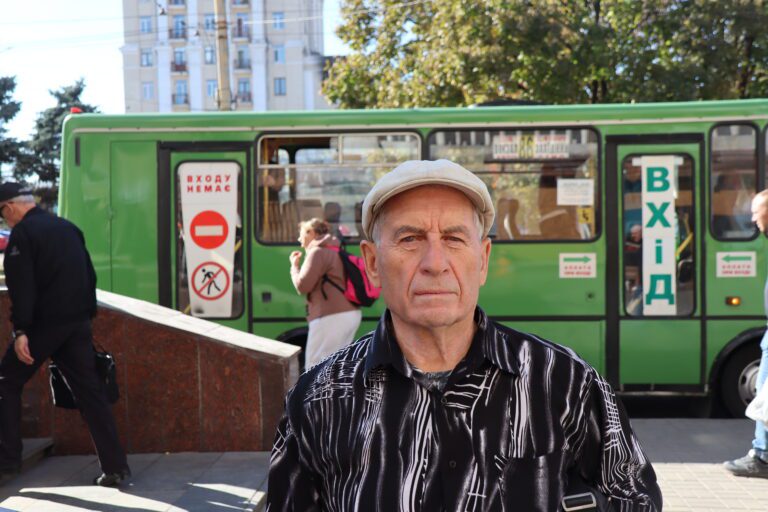A heartfelt relief
The healthcare system of Ukraine was in disarray as the war broke out more than half a year ago. Hospitals across the country were running low on medicine, while with the refugee crisis the needs of the population saw a twofold increase. With the influx of refugees, healthcare institutions were nearing collapse as medical supplies dried up. If it were not for international humanitarian aid the situation could have worsened to an unimaginable level, and the direct effects of the war would have taken even more lives. As the situation has stabilized, Christian Aid-funded medical deliveries by Hungarian Interchurch Aid help the healthcare system run. In total, the organisation bought and transported medicine and ambulance equipment worth €250,000 into Ukraine. One of the organisations’ many beneficiaries, the Chernivtsi Regional Emergency Hospital views the latest delivery as a lifeline.
Life in a hospital never stops, for it is life itself for those who become in need of its service. Just like a heart beating in every human being’s chest, a hospital rhythmically assures all around and within that its relentless work is the foundation of continuity. A heart provides indiscriminately, honoring its mission above all else. In peace and stability, rarely does anyone think about it. In distress, we all recognize its God-given purpose and significance.
The Chernivtsi Regional Emergency Hospital is no exception. Its somewhat predictable work schedule came under pressure from outside aggression which sent shock waves across Ukraine. Adrenaline filled each and every doctor, nurse, and personnel within the walls of the multi-storey institution, all trying to cope with a pressure they have not seen before. Hundreds of them worked in imperfect harmony to face the challenge of increased workload due to tens of thousands of people flocking to relatively safe region, and especially its capital, Chernivtsi, which hosts about 260 thousand inhabitants – in peacetime.
In desperate times every bit of help counts
As the war progressed, the heart of healthcare slowly but surely went into overdrive, and while it was up to the challenge, its means of facing the challenges thrown at it were thinning with each passing day. Logistics across the country broke down, and the essential supplies that kept the hospital going were diminishing. Doctors had to face the unfathomable: deciding whether a patient suffers from pain or is put on a waiting list for life-saving operations because of medicine directed to the war effort which created a general shortage of necessary drugs. Whatever supplies were in reserve, they were all but nearly gone.
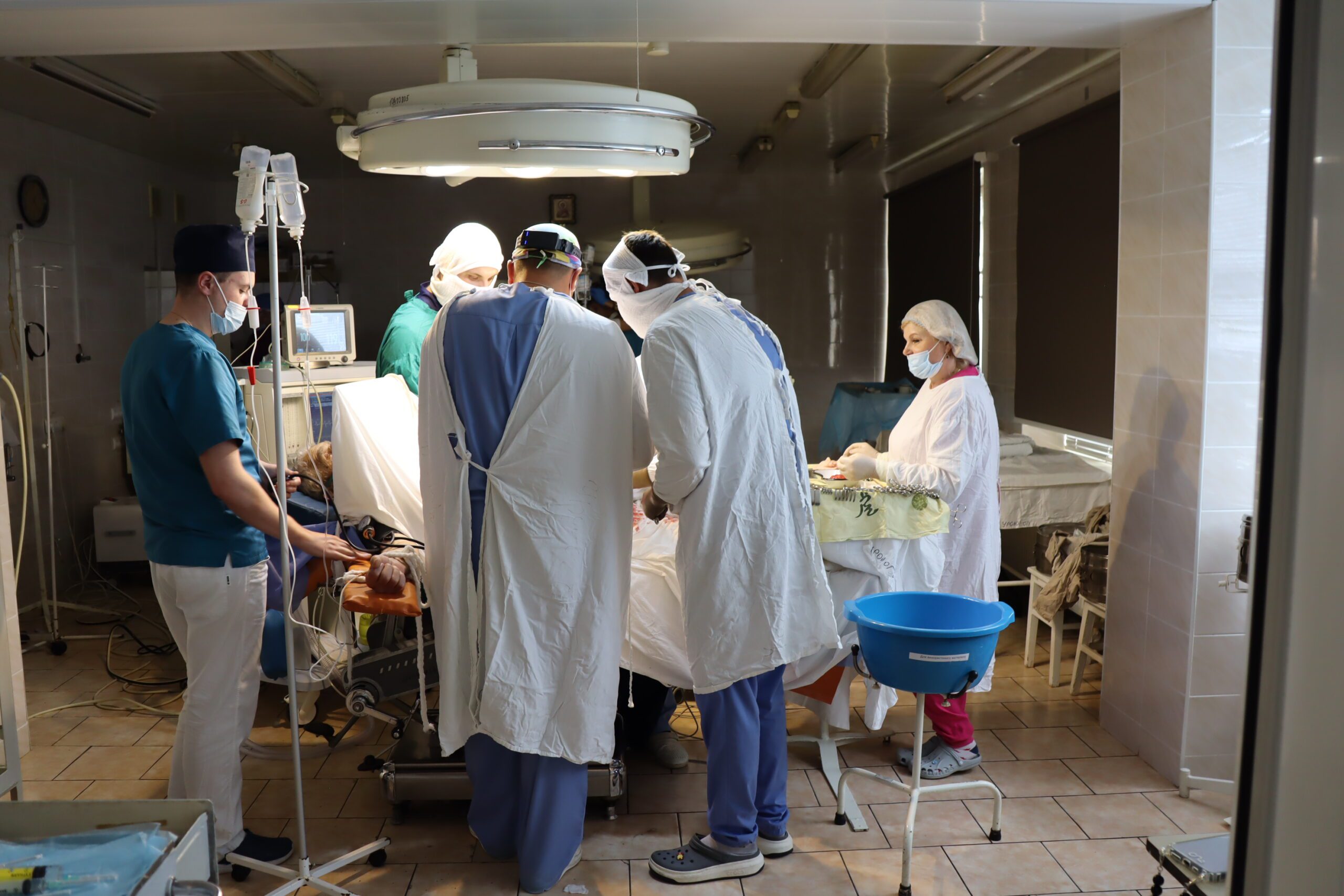

“There were difficult times as the war broke out, something we thought unimaginable. It was only due to the generosity of our partners abroad that we managed to get back on track and keep providing the necessary services for the now increased population of our region” says Oleksandr Matviyovich, medical director of the hospital.
Close to cardiac arrest
As the medical supplies were directed elsewhere, difficulties arose as more and more people arrived from war-torn areas with little more or even less than a suitcase. “Some people had nothing on them, not even documents. That was a grave issue. People usually – especially those with chronic diseases – have their own doctors who are aware of the medical history and other information about their patients. When people arrived with nothing, we had to run diagnostics, no matter if they were completely sure what medicines they took before. Needless to say, that increased our workload”, remembers the darkest days Oleksandr, pointing out that the dwindling medical supplies only worsened the desperate situation. “There were occasions that refugees arrived at night, exhausted, hungry. At times, some were treated in the waiting room, others were given “emergency food” because they haven’t eaten for days. It was truly an emergency unlike anything I have seen before” he adds.
The Chernivtsi hospital was becoming overclocked, fearing that with each passing hour it would see the fate of a biological heart in a similar situation: going into shock and flatlining.
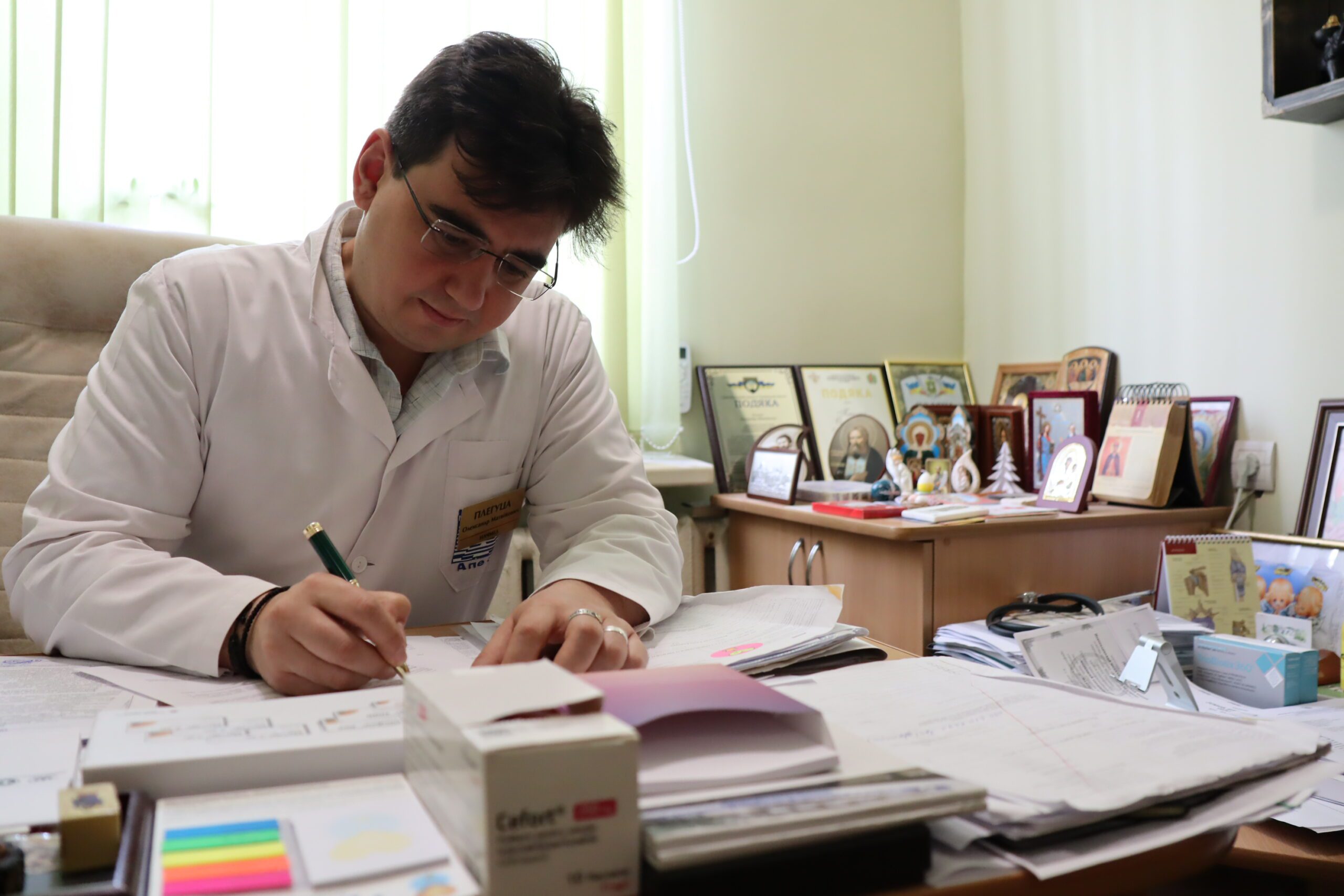

Lifeblood from outside
“That wholehearted help provided by our partners, our supporters was key in maintaining constant healthcare,” says Oleksandr with his hand on his heart, his voice vibrating with genuine gratitude. International donations arrived just in time, providing a lifeline to the hospital. The darkest days are over, but that doesn’t mean that so are the needs. Compared to the beginning of the war, logistics have turned around. Now it is Chernivtsi that provides other regional and municipal hospitals with medical supplies, thus just like a heart, it keeps the healthcare system alive.
“The medicine our institution has an abundance of is directed to where there is need of them. Thanks to the international donation, we have managed to build up a reserve of supplies, but there is no point in keeping everything to ourselves. We have to keep in mind the expiry date as well so that everything would be used effectively,” explains the medical director. The donation of Christian Aid, delivered by its ACT Alliance partner Hungarian Interchurch Aid played a crucial role in helping the hospital build up a medicine stock.
Although the situation is now stable in Chernivtsi, the war is far from over, therefore is still a need for support. “What has changed is that now we turn to our donors with specific requests. Half a year ago the needs were colossal, we were short of everything. Now, thanks to the amazing humanitarian help we received and keep on receiving, we can plan ahead and maintain an efficient healthcare service,” concludes Oleksandr.
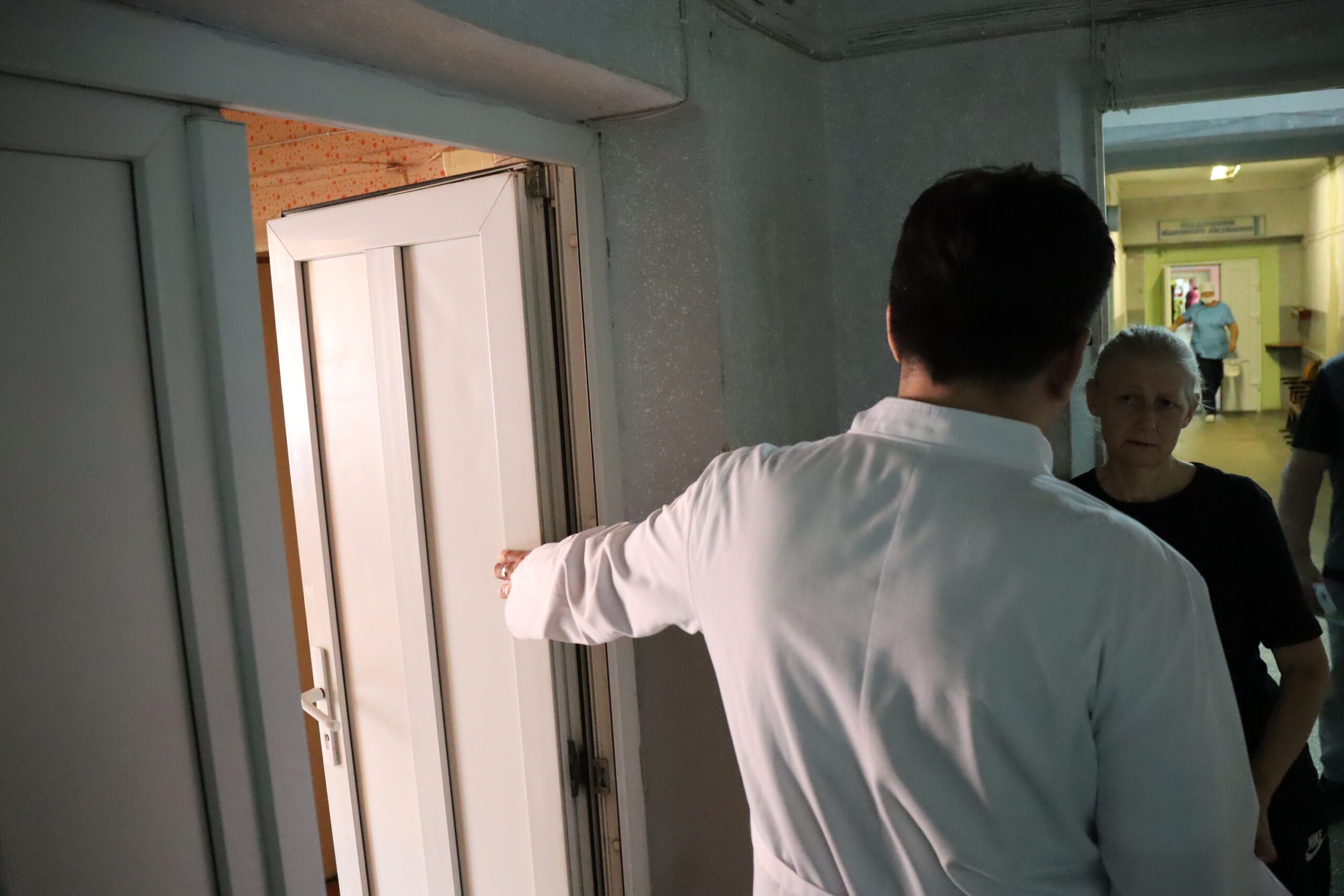

Oleksandr spoke of the struggles of the hospital while giving a tour of the busy institution. Patients and colleagues stopping in the corridors to thank him and the hospital for the care they’ve received is a testament to the significance and result of the help coming from ACT Alliance. It helps the medical heart of the Chernivtsi region keep on beating.

